Generating inferential reading strategies for academic texts through Artificial intelligence
DOI:
https://doi.org/10.24310/isl.19.2.2024.19185Keywords:
strategies, inferential reading, academic texts, AI, reading literacyAbstract
This study focuses on providing teachers with inferential reading strategies to use in the classroom to improve students' reading literacy. To this end, different techniques of prompt engineering based on the use of the PLN model are used. This work aims to extend the discourse on inferential reading strategies by using three artificial intelligence tools to encourage the explicit teaching of inferential reading strategies to improve text comprehension, especially to promote the development of students' critical thinking and creativity through the interconnection of texts. To carry out this study, a representative set of texts on didactics is selected, and the inferential reading strategies used by chatbots to summarise these texts are identified. Subsequently, an analysis of the inferences present in the identified intertexts is carried out. Finally, the results are interpreted in the context of inferential comprehension strategies. In conclusion, it is shown that chatbots can contribute to the development of inferential reading, highlighting the importance of teaching and practising reading strategies in the classroom to improve reading literacy.
Downloads
Metrics
Publication Facts
Reviewer profiles N/A
Author statements
- Academic society
- N/A
- Publisher
- EduVerso, Universidad de Málaga
References
Alonso-Cortés Fradejas, M. D. (28 de junio de 2023). ¿Por qué el alumnado español sigue sin progresar en comprensión lectora? The conversation. https://theconversation.com/por-que-el-alumnado-espanol-sigue-sin-progresar-en-comprension-lectora-206687
Bausela, E. (28 de junio de 2023). Enseñar a leer y entender: estrategias para la comprensión lectora. The conversation. https://theconversation.com/ensenar-a-leer-y-entender-estrategias-para-la-comprension-lectora-206803
Binkley, M., Rust, K., & Williams, T. (Eds.).(1997). Reading literacy in an international perspective. US Department of Education.
Blecua, J.M. (Coord.). (2015). Lengua castellana y literatura. 1º ESO. SM
Britt, M. A., & Rouet, J.-F. (2012). Learning with multiple documents: Component skills and their acquisition en M. J. Lawson & J. R. Kirby (Eds.), The quality of learning: Dispositions, instruction, and mental structures. Cambridge University Press.
Caro Valverde, M.T. (2023). Enseñar a ensoñar: la educación competente de la lengua y la literatura desde la poética del lector. Octaedro.
Caro Valverde, M.T. y González García, M. (2018). Didáctica de la argumentación en el comentario de textos. Síntesis.
Caro Valverde, M.T. y de Amo Sánchez-Fortún, J.M. (2023). El comentario argumentativo de textos: multimodalidad y transmodalización. Síntesis.
Colomer, T. (2001). La lectura de ficción enseña a leer. Revista El monitor de la educación.
Colomer, T. (2018). Fomento de la Lectura y Educación Lectora desde una perspectiva de Educación Inclusiva. Revista sobre lectura, formación de lectores y literatura para niños.
Creswell, J., & Creswell, J. D. (2018). Research Design: Qualitative, Quantitative and Mixed Methods Approaches (5.ª ed.). Sage.
Dörnyei, Z. (2007). Research Methods in Applied Linguistics. Oxford University Press.
El correo de Burgos (10 de septiembre de 2023). Saturnino Calleja: Instruir deleitando. https://www.elcorreodeburgos.com/burgos/230910/187278/saturnino-calleja-instruir-deleitando.html
Galbarini, P. y Alasio, M. S. (2022). Reflexión gramatical para mejorar la comprensión de textos [Resumen de presentación de la conferencia]. VII Congreso Regional de Arte, Literatura y Sociedad-CORALISViedma, Río Negro, Argentina.
García García, E. (1993). La comprensión de textos. Modelo de procesamiento y estrategias de mejora. Didáctica. lengua y literatura, 5, 87-115. Editorial Complutense.
Hernández-Sampieri, R., Fernández-Collado, C. y Baptista-Lucio, M. (2014). Metodología de la investigación (6ª ed.). McGraw Hill Education.
Ivankova, N. & Greer, J. (2018). Mixed Methods Research and Analysis. En B. Paltridge y A. Phakiti (Eds.), Research Methods in Applied Linguistics (pp. 60-74). Bloomsbury.
Kintsch, W., & Van Dijk, T.A. (1978). Toward a model of text comprehension and production. Psychological Review, 85(5), 363–394. https://doi.org/10.1037/0033-295X.85.5.363.
Kintsch, W. (1998). Comprehension: A paradigm for cognition. Cambridge University Press.
Instituto Nacional de Evaluación Educativa. (2020). PISA 2018. Resultados de lectura en España. Ministerios de Educación y Formación Profesional.
Jiménez Pérez, E. (2015). Evaluación de la competencia lectora: PISA, PIRLS y TECLE, E. Jiménez Pérez (coord.), La comprensión y la competencia lectoras, pp. 109-119. Editorial Síntesis, Colección Didácticas, Recursos y Aprendizaje. ISBN: 978-84-9077-250-8.
Mateo Girona, M.T. y Gómez Sáenz de Miera, T. (25-27 de octubre de 2023). Exploración de la intentio lectoris para fomentar procesos de lectura crítica y creativa con ChatGPT [Resumen de presentación de la conferencia]. VII Congreso Internacional Virtual de Educación Lectora, Cádiz, España. https://civel2023.uca.es/wp-content/uploads/2023/10/Libro-de-resumnes-CIVEL-2023.pdf
McNamara, D. S., & Magliano, J. (2009). Toward a comprehensive model of comprehension. Psychology of Learning and Motivation, 51, 297-384.
Núñez Delado, P. (2015). La comprensión lectora: aspectos teóricos y didácticos, J. Mata Anaya, P. Núñez Delado, J. Rienda Polo (coords.), Didáctica de la lengua y la literatura, pp. 97-130. Pirámide.
Oakhill, J. V., Cain, K., & Bryant, P. E. (2003). The dissociation of word reading and text comprehension: Evidence from component skills. Language and Cognitive Processes, 18, 443-468.
OCDE. (2018). Marco teórico de lectura. PISA 2018. OCDE.
OCDE. (24 de febrero de 2023). PISA. Programme for International Student Assessment. https://www.oecd.org/pisa/pisa-es/
Real Academia Española (2019). Glosario de términos gramaticales. Ediciones Universidad de Salamanca.
Richter, T., & Rapp, D. N. (2014). Comprehension and validation of text information: Introduction to the special issue. Discourse Processes, 51, 1-6.
Universidad de Huelva (9 de diciembre de 2022). La Universidad de Huelva pone en marcha una revista científica innovadora sobre didáctica y lenguas. https://www.uhu.es/noticias/la-universidad-de-huelva-pone-en-marcha-una-revista-cientifica-innovadora-sobre-didactica
Van den Broek, P., Virtue, S., Everson, M., Tzeng, Y., & Sung, Y. (2002). Comprehension and memory of science texts: Infe- rential processes and the construction of a mental representation, J. Otero, J. Leon, & A.C. Graesser (Eds.), The psychology of science text comprehension (pp. 131-154). Erlbaum.
Werlich (1976). A text grammar of English. Quelle and Meyer.
Zwaan, R. A., & Singer, M. (2003). Text comprehension en A. C. Graesser, M. A. Gernsbacher, & S. R. Goldman (Eds.), Handbook of discourse processes (pp. 83-122). Erlbaum.
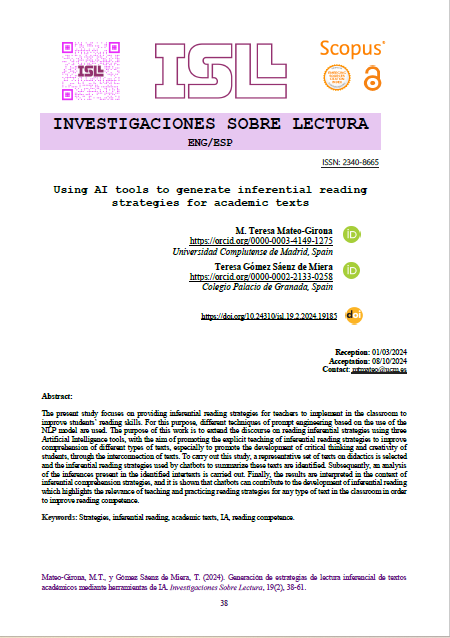
Downloads
Published
How to Cite
Issue
Section
License
Copyright (c) 2024 María Teresa Mateo Girona, Teresa Gómez Sáenz de Miera

This work is licensed under a Creative Commons Attribution-NonCommercial-ShareAlike 4.0 International License.
All contents published in Investigaciones sobre la Lectura are protected under the Creative Commons Attribution-NonCommercial-ShareAlike 4.0 International (CC BY-NC-SA 4.0) license. All about this license is available in the following link: <http://creativecommons.org/licenses/by-nc-sa/4.0>
Users can copy, use, redistribute, share and exhibit publicly as long as:
- The original source and authorship of the material are cited (Journal, Publisher and URL of the work).
- It is not used for comercial purposes.
- The existence of the license and its especifications are mentioned.
There are two sets of authors’ rights: moral and property rights. Moral rights are perpetual prerogatives, unrenounceable, not-transferable, unalienable, imprescriptible and inembargable. According to authors’ rights legislation, Investigaciones sobre la Lectura recognizes and respects authors moral rights, as well as the ownership of property rights, which will be transferred to University of Malaga in open access. The property rights are referred to the benefits that are gained by the use or the dissemination of works. Investigaciones sobre la Lectura is published in an open access form and it is exclusively licenced by any means for doing or authorising distribution, dissemination, reproduction, , adaptation, translation or arrangement of works.
Authors are responsable for obtaining the necessary permission to use copyrighted images.






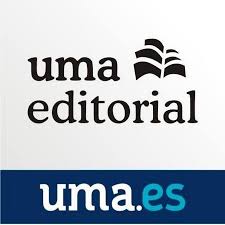
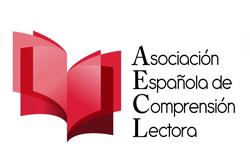
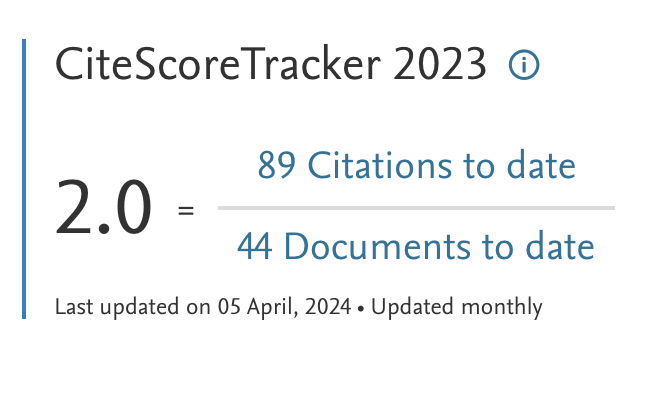
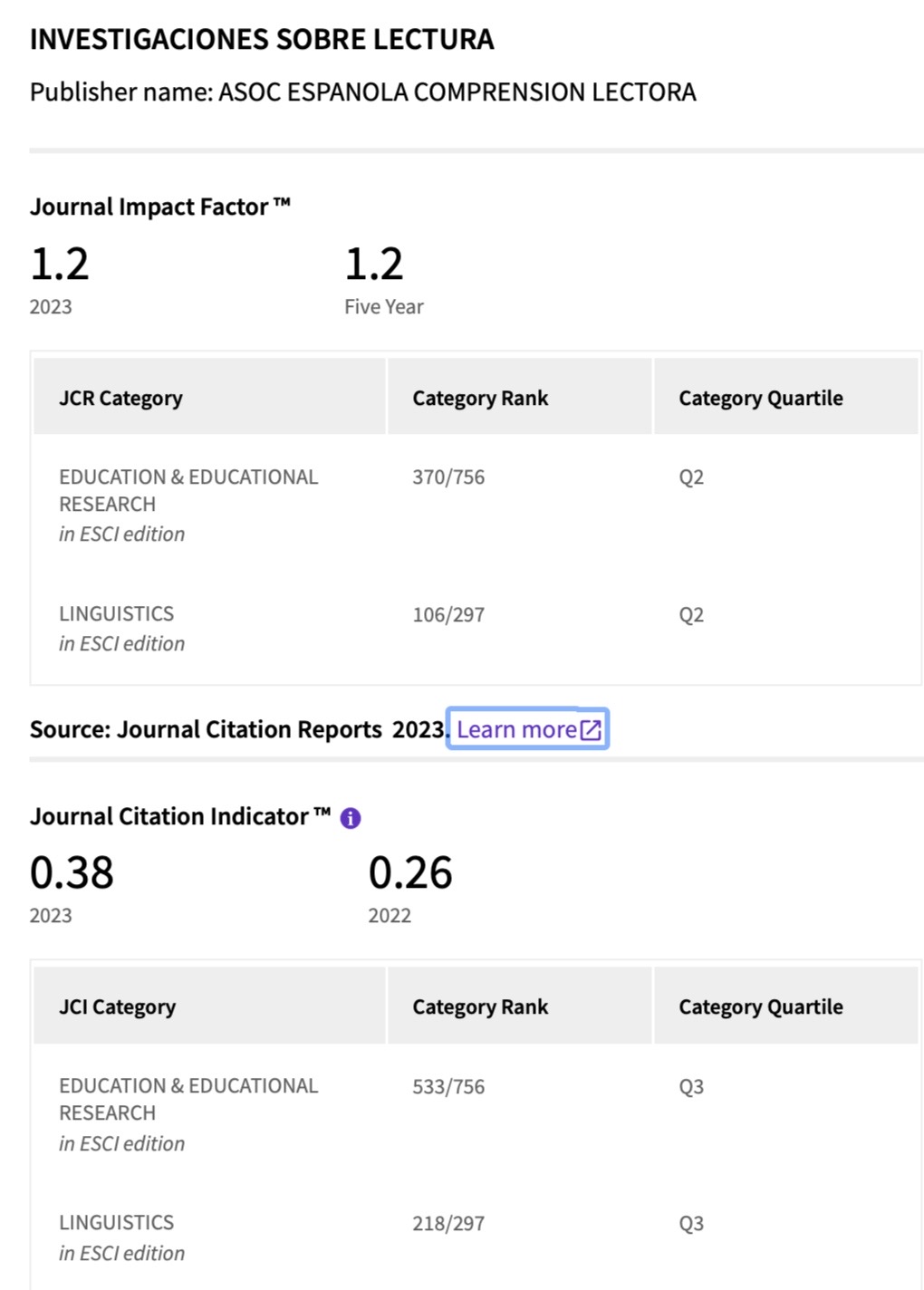
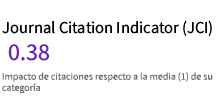
31.png)









